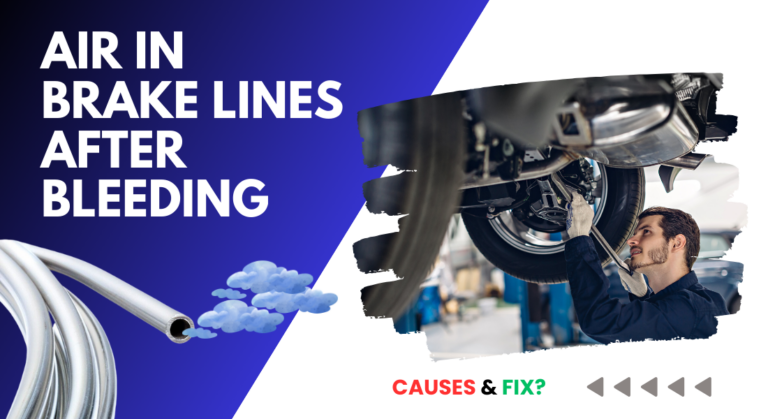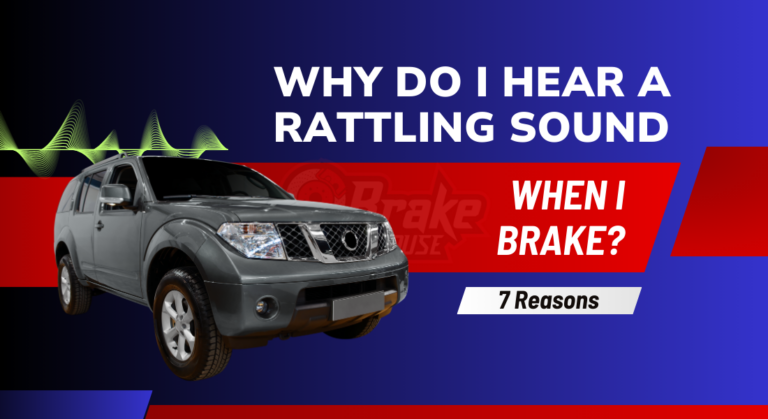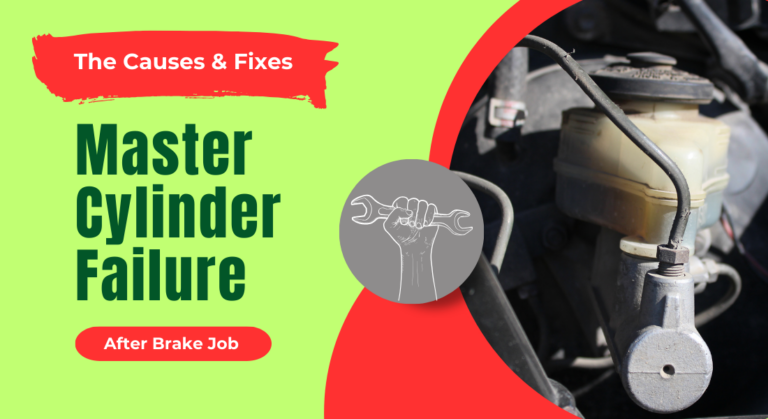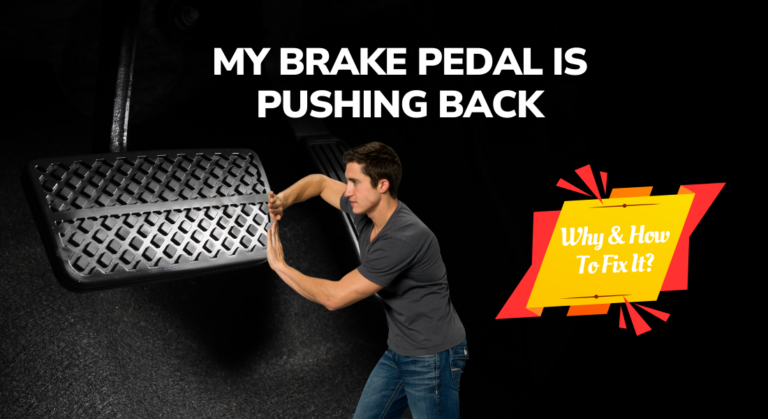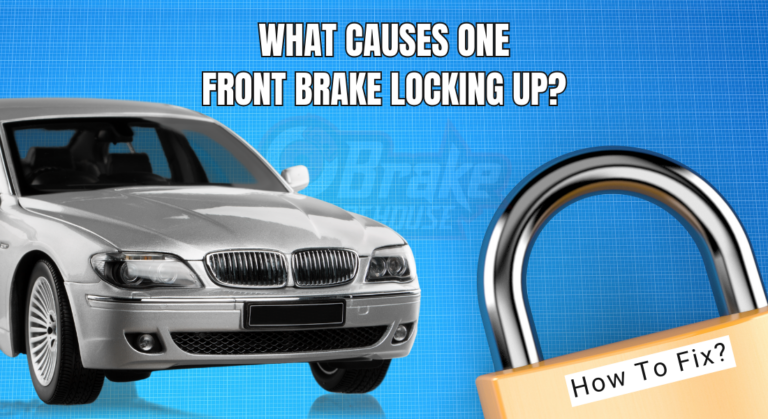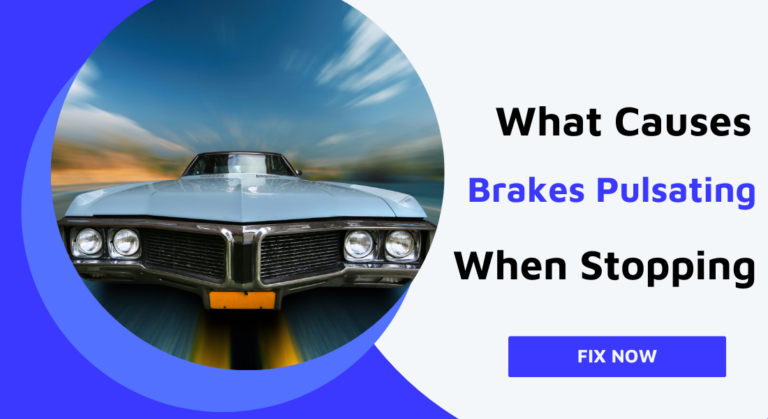Why Brakes Locking Up in Reverse – How To Fix?
Brakes are engineered to stop and slow your wheels upon activating the brake pedal. Thus, brakes locking up signals a clear issue. However, it can be perplexing when this issue solely arises in reverse.
The primary culprits are over-extended brake caliper pistons, damaged brake rotors, broken brake pads, and brake caliper bolts. Stop driving your car in traffic is advisable until you’ve identified and resolved the problem. Since your brakes are locking up in reverse, it’s crucial to investigate the root cause immediately.
Relax if you’re experiencing brake lockup in reverse and feeling uncertain about the next steps. This guide discusses why brakes locking up in reverse and its swift solutions.
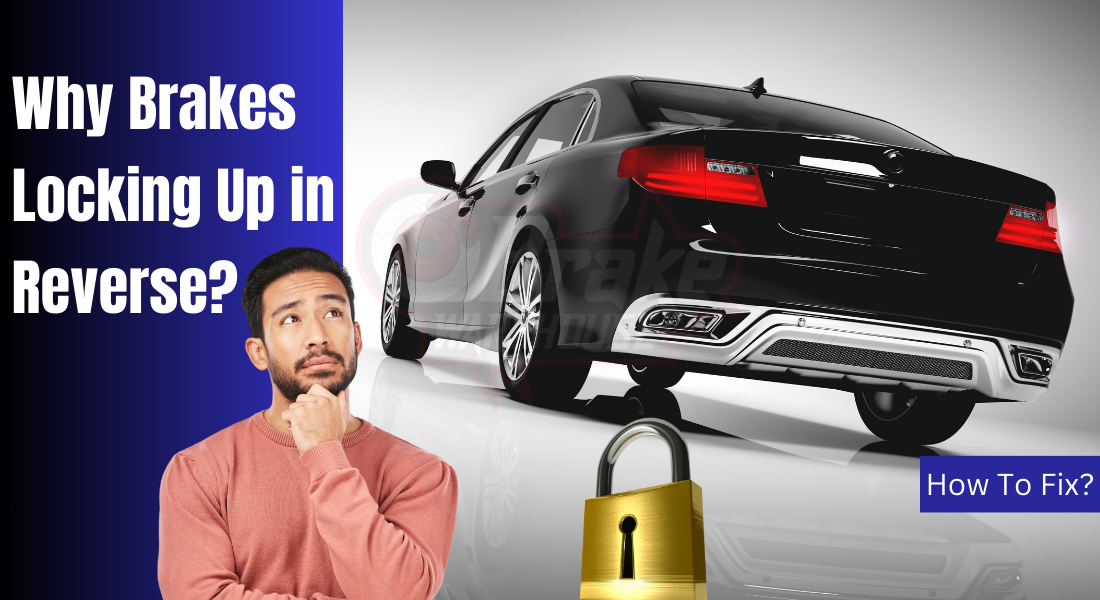
Why Brakes Locking Up in Reverse?(Troubleshoot & Fix)
Several logical explanations exist for this problem, each accompanied by viable solutions to resolve the issue.
Here’s the reason your brakes lock up in reverse and the steps to rectify it:
1. Over-Extended Brake Caliper Pistons

When your brakes unexpectedly lock up in reverse, your first action should be to inspect the brake caliper pistons for over-extension.
These pistons serve a specific purpose. When you apply pressure to the brake pedal, the brake system extends the piston to engage the brake pad against the rotor. As a result, friction gets generated to slow down the wheels.
However, if the brake pads are excessively worn, the piston may continue moving until it over-extends itself. Consequently, it becomes stuck in the extended position and keeps the brake locked even during reverse maneuvers.
Solution
Your initial task is to manually retract the brake caliper piston to its original position, as it cannot do so automatically.
However, it’s crucial to address the root cause: the severely worn brake pads. To prevent caliper over-extension from recurring, replace the old brake pads with new ones.
Additionally, you can proactively avoid this issue by ensuring a regular brake pad replacement schedule. Generally, brake pads typically between 30,000 to 50,000 miles.
2. Damaged Brake Rotors

Another factor contributing to your brakes locking up in reverse is the brake rotors condition. This issue also happens due to the excessively worn brake pads.
The brake rotor is directly linked to your wheel and rotates in tandem. When you intend to slow down, the brake pads grip the rotor to generate friction, thus decelerating the wheel.
However, when the brake pads have worn down substantially, they lose their material to press against the brake rotor. Consequently, the metal backplate begins to grind against the rotor, causing its once-smooth surface to become coarse.
As this abrasion persists, it gradually forms a pronounced lip on the outer circumference of the rotor. Not only does this harm your brake rotors, it also results in your brakes locking up when you engage reverse.
Solution
The worn-out brake pads are the primary culprit behind this problem. Thus, your initial step should be to replace these with fresh ones and remain vigilant in replacing them before they wear out again.
However, it’s essential to acknowledge that your brake rotors have sustained substantial damage.
If the damage to the brake rotors is superficial, you have the option to resurface them. However, if the damage is extensive enough to trigger brake lockup during reverse, replacing them with new rotors is advisable.
The brake system ensures your car’s safety, cutting corners on this repair is mandatory. If feasible, choose for a complete replacement for optimal safety and performance.
Read Also: When or How Often to Replace Brake Rotors?(Common Signs)
3. Broken Brake Pad

Another potential culprit behind your brakes locking up during reverse, even when forward driving seems trouble-free, could be one or more fractured brake pads.
A brake pad typically comprises a metal backing plate onto which the pad material is affixed. Over time, the pad material gradually wears down with extended usage until only the backing plate remains.
You should replace brake pads well before exposing the backing plate.
While occurrences of this nature are infrequent, a segment of the metal backing plate can break off and become dislodged. When you engage reverse, this fractured portion may wedge against the rotor, obstructing the entire wheel’s movement.
Solution
It’s evident that the broken brake pads need immediate replacement; there’s no way around this necessity.
However, it’s equally crucial to meticulously examine the wheel, ensuring that all fragments of the broken pad are removed from the vicinity of the rotor. Don’t assume these fragments have fallen to the ground; some may still be trapped in hidden crevices.
Lastly, undertake a comprehensive inspection of your brake rotor and its neighboring components for any indications of damage. Regrettably, the dislodged fragments you extracted may have been scraping or abrading other parts, potentially causing substantial harm.
By conducting a thorough examination, you can identify any additional problems while they are in their nascent stages. Not only does this uphold the safety of your vehicle on the road, but it also saves costs by preempting the need for more extensive repairs.
Read Also: Both Front Brake Calipers Not Releasing – Why & How To Fix?
4. Fractured Brake Caliper Bolt

Finally, another potential cause of your brakes locking up in reverse could be one or more fractured caliper bolts. As the name implies, these bolts play a crucial role in anchoring your brake calipers securely.
However, if they haven’t been tightened sufficiently or have loosened due to excessive vibrations, a loose bolt can allow the caliper to pivot upward and come into contact with the inside of the wheel. This scenario can also unfold if the bolts break for any reason.
In such a situation, reversing your vehicle will lead to the loose caliper seizing the wheel, rendering it immobile.
Solution
To resolve this problem, replace all the brake caliper bolts as a complete set. This entails substituting the broken or loosened one and the others as a precaution.
Doing so ensures that all your caliper bolts are in optimal condition and will wear uniformly over time.
Once again, conducting a comprehensive inspection of your braking system is crucial to confirm that no other components have been affected by this issue. A broken or loosened bolt may have caused damage to adjacent parts, making it advisable to address any additional repairs concurrently.
Read Also: How To Free a Stuck Brake Caliper Piston?(11 Steps Guide)
What To Do When Your Brakes Lock Up?
If your brakes lock up while in reverse, remaining calm and composed is crucial. Maintaining your composure lets you think clearly and determine the best action.
Here are the steps to take:
- Activate the hazard lights immediately and look for a safe spot along the road where you can bring your vehicle to a stop. Choose a location that won’t impede the flow of traffic, and if necessary, use your horn to signal to other drivers that you are experiencing a vehicle issue.
- Utilize the emergency handbrake to halt your vehicle’s movement. If you cannot immediately bring the car to a stop, try to keep your speed below 40 miles per hour to maintain control over the vehicle despite the brake issue.
- Your next step should involve seeking assistance from a mechanic or a nearby service center. If you possess the knowledge and skills to address brake issues, you can attempt manual brake system repairs. However, it’s crucial to prioritize safety throughout the process.
FAQs
What are the consequences of this problem?
The consequences of brakes locking up in reverse include safety risks, potential accidents, and damage to the braking system and related components.
Sudden loss of control can lead to collisions or loss of vehicle stability. Additionally, prolonged locking can cause rotor and pad damage, necessitating costly repairs.
Can A Master Cylinder Cause The Brakes To Lock Up?
Yes, a faulty master cylinder can cause brakes to lock up. Suppose the master cylinder fails or develops internal problems. In that case, it may not release brake fluid pressure properly, resulting in the brakes remaining engaged, which can lead to wheel lockup and compromised vehicle control.
How can you avoid it?
To avoid master cylinder-related brake lockup, perform regular brake system maintenance, including checking for fluid leaks, inspecting brake lines, and ensuring the master cylinder is in good working condition.
Replace brake fluid as recommended, and promptly address any signs of brake system issues, such as soft or spongy brake pedal feel or fluid loss.
Sump Up
Hopefully, you are now well aware that many reasons contribute to why brakes locking up in reverse. Undoubtedly, the issue is frustrating. However you can follow a simple trick to
When reversing, maintain a slow speed to reduce the likelihood of brake lockup due to excessive force. Ensure no obstacles near your tires could trigger lockup during a gradual reverse maneuver.

Meet Zayan, the mechanical genius behind the highly acclaimed brakes problems and solutions website. With over a decade of hands-on experience in the automotive industry, Zayan has become a trusted authority in the realm of brake systems.
His passion for cars, coupled with his expertise in solving complex brake-related issues, has earned him a devoted following of car enthusiasts, mechanics, and everyday drivers seeking reliable guidance.

